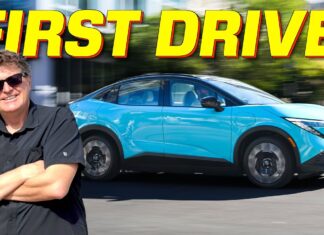
The proposal would create the world’s third-largest automaker.
It is not an official deal yet, but Fiat Chrysler Automobiles (FCA) submitted its proposal for a merger with French automaker Renault. The merger calls for a 50-50 partnership between the two companies. In the process, it would create the world’s third largest automaker behind Toyota and Volkswagen Group. FCA published a release on its merger proposal Monday, stating it could achieve up to 8.7 million sales annually with “a strong market presence.”
FCA cited the cost — and the potential savings — as a “global automaker” by improving capital efficiency, as well as how quickly the company can develop new product. Major shifts in the automotive industry, including electrification, connectivity and autonomous driving, are the driving forces behind FCA’s merger proposal. FCA estimates 40 percent of its cost savings will come from joint purchasing ability, while 30 percent will come from mutually beneficial R&D efficiencies and 20 percent from manufacturing and tooling efficiencies.
The company is looking to tackling most global markets with the merger, and does not think it will need to close factories in the event of a merger. Instead, with the projected savings, the larger manufacturer could ultimately become the second largest automaker in Europe, the Middle East and Africa (EMEA), number one in Latin America, and number four in North America.

What about the Renault-Nissan-Mitsubishi Alliance?
FCA argues in the merger proposal Renault’s Japanese partners could benefit as well. The relationship among the three automakers has been fractious in the wake of ex-Nissan chairman Carlos Ghosn’s arrests. The proposal mainly focuses on Renault, which suggests neither Nissan nor Mitsubishi are not heavily involved in negotiations yet. The French automaker, on the other hand, acknowledged receipt of FCA’s merger proposal. Renault is considering the offer, meaning we could see an actual merger if both parties and respective regulatory bodies agree.
Then again, because of the current state of Renault, Nissan and Mitsubishi’s partnership, the merger may not move forward until that integration is worked out. In this deal, the larger company would have 11 total board members. Four would come from Renault, four from FCA, one from Nissan and the rest would be independent. Under the current structure, it seems Nissan would have little voice in company affairs moving forward. With no dedicated board member, Mitsubishi may not have any voice to reach consensus with the other companies.
There’s much that remains unclear about the potential merger at this point. However, an expansion could make FCA a larger player here in North America, as well as in global markets, while companies like General Motors divest their overseas interests.

























